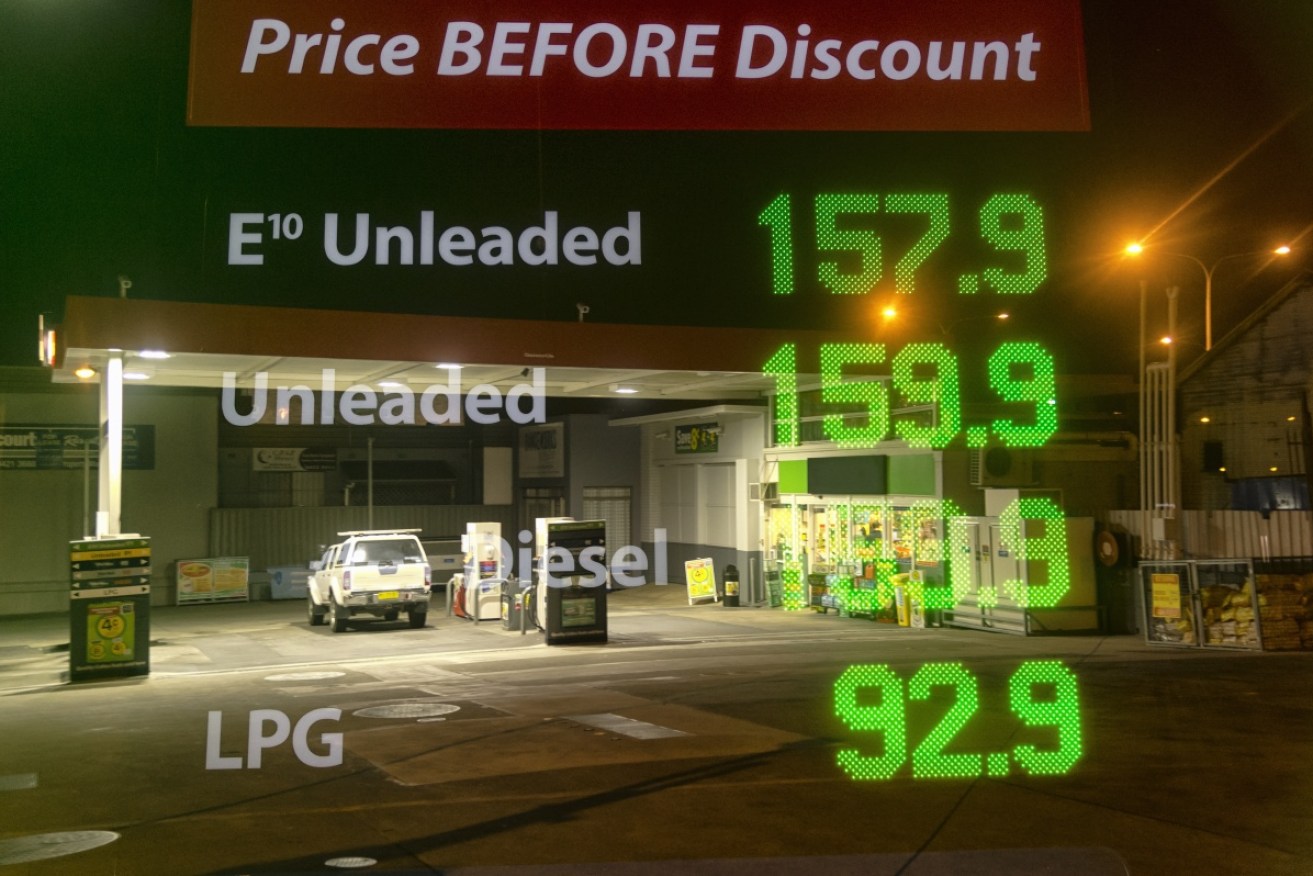‘Wild’ petrol prices are playing tricks with our minds

Don't be a victim of petrol price cycles. Photo: Getty
Artificial petrol price cycles are contributing to our financial stress, experts have warned.
Petrol prices remain very high on Australians’ list of economic woes, not because they are at record highs, but potentially because they fluctuate wildly from week to week – and even day to day – in the major cities.
New research released this week by consumer group CHOICE found that fuel prices (72 per cent) were the fourth-biggest cost of living concern of Australians, close behind energy prices (82 per cent), medical costs (79 per cent), and food and groceries (73 per cent).
The finding comes despite the fact petrol prices were at relative lows across the capital cities because of the aftershocks of a global oil oversupply.
MotorMouth fuel price spokesman Chris Huth said the price cycles added to financial stress.
“Where people can get caught is, they drive home today and the price is $1.08 and they decide to get it later. Then tomorrow they wake up and it’s $1.38 – that’s the thing that really causes people to shout out, ‘What are these buggers doing to me!’” he told The New Daily.
“It was just unfortunate timing. But that’s what people focus on. They don’t focus on the fact that, for the last two or three weeks, they were buying at a really sharp price and they’ve just hit it at the wrong time.”
National Roads and Motorists Association (NRMA) spokesman Peter Khoury agreed the “anomaly” of petrol price fluctuation helped explain why motorists worry about the cost of fuel even when prices are relatively low.
“There’s no other product in Australia where this behaviour occurs,” he told The New Daily.
The leading economic theory is the ‘Edgeworth Price Cycle‘, which says that markets for ‘homogenous’ (very similar) products like petrol, where competition on price is fierce, tend to peak and trough naturally.
An Australian study published earlier this year concluded that retailers ‘tacitly collude’ on prices because the market is dominated by a few big players.
“Big players can act like conductors, and smaller players can act like the orchestra, in coordinating on tacitly collusive pricing behaviour,” the authors wrote.
However, both MotorMouth and the NRMA agreed that price cycling is not so much of a concern if motorists know when and how to take advantage of the troughs.
“Prices go up but they also go down, and when they go down it gives you a really good opportunity to get a bargain,” Mr Khoury said.
“The challenge is knowing when to fill up, and that’s why NSW motorists have an advantage.”
After intense lobbying, the state government of New South Wales last year forced all service stations in the state to publish their petrol prices in real time.
Mr Khoury said other states and territories should have copied NSW long ago.
The NRMA has used this data to create a smartphone app that guides motorists to the cheapest fuel in real time.
“We know the reforms are popular with the public because of the use of the data that’s available on our app,” Mr Khoury said.
“What it’s also done is put pressure on the retailers to compete on price because they are no longer relying on ignorance.”
The ACCC, which has been monitoring the petrol industry since late 2014, publishes detailed information on major city price cycles on its website.










